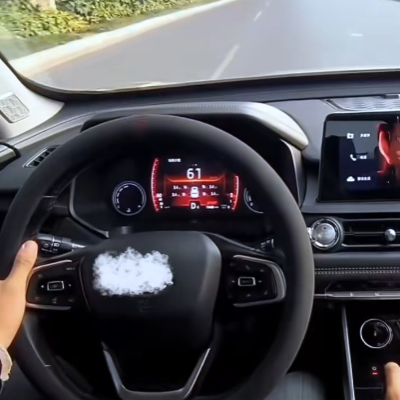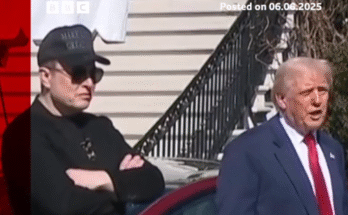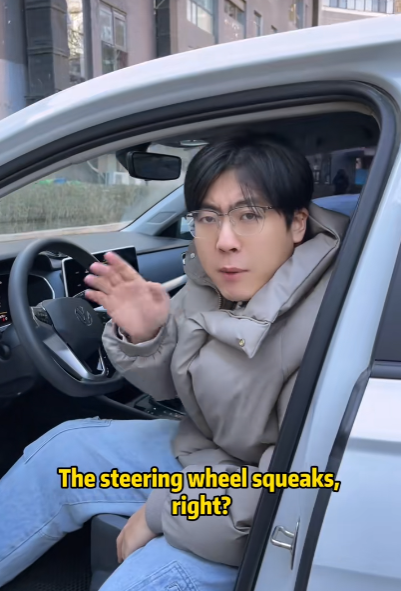
Cars are complex machines with many moving parts, and while they’re designed to run smoothly, it’s common for them to develop strange noises from time to time. Abnormal noises can often be an indication that something is wrong, ranging from minor issues to more significant mechanical problems. Identifying and addressing these noises early on can save you time, money, and prevent more severe damage to your car. In this article, we’ll explore common causes of abnormal car noises and how to solve them.
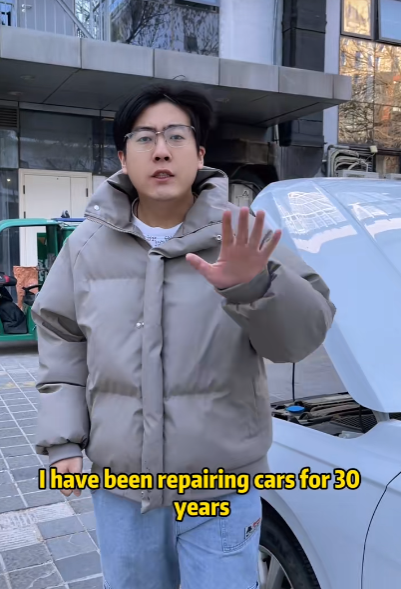
Types of Abnormal Car Noises
Understanding the type of noise your car is making can help you pinpoint the problem. Common noises include squeaking, grinding, knocking, rattling, and whining. Let’s break down the possible causes of these sounds and how to troubleshoot them.
1. Squeaking or Squealing Noises
A high-pitched squeaking or squealing noise coming from your car, especially when you apply the brakes, is often a sign of worn brake pads or rotors.
Possible Causes:
- Worn Brake Pads: Brake pads have wear indicators that create a squealing sound when the pads are worn down, signaling that it’s time to replace them.
- Moisture on Brake Components: If your car has been exposed to rain or high humidity, moisture on the brake pads or rotors can cause temporary squealing.
- Contaminated Brake Pads: Dirt, debris, or rust on the brake pads or rotors can cause friction that leads to squeaking.
How to Solve:
- Inspect the Brakes: Examine the brake pads for wear. If the pads are thin, it’s time to replace them.
- Clean the Brakes: You can clean the brake components to remove any dirt or debris that might be causing the squeaking.
- Replace Worn Parts: If the squeaking persists, the brake pads, rotors, or both may need replacement. Consult a mechanic to ensure the problem is resolved.
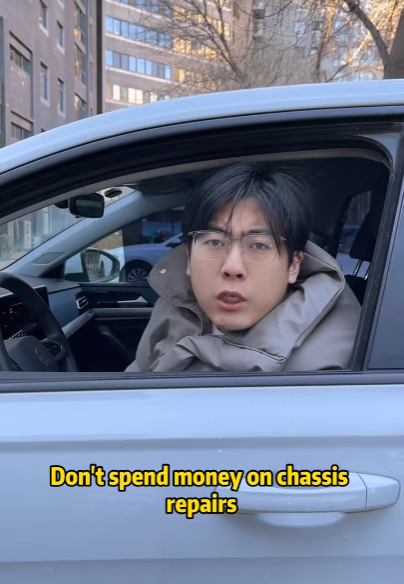
2. Grinding Noises
Grinding noises often indicate a more severe problem and are usually heard when the brake pedal is pressed.
Possible Causes:
- Worn Brake Pads: If brake pads are excessively worn, the metal part of the pad will start grinding against the rotor, causing a grinding sound.
- Debris Between Pads and Rotors: Small rocks or debris can become trapped between the brake pads and rotors, leading to grinding.
- Worn-out Rotors: If the rotors themselves are damaged or unevenly worn, they can cause a grinding noise as they make contact with the brake pads.
How to Solve:
- Inspect the Brakes: If you hear a grinding sound, it’s important to have your brakes inspected immediately.
- Replace Brake Pads and Rotors: If the pads are worn down, replacing them will stop the grinding. In some cases, the rotors may also need to be resurfaced or replaced.
- Remove Debris: Check the brake components for debris that may be causing the noise and remove any foreign objects.
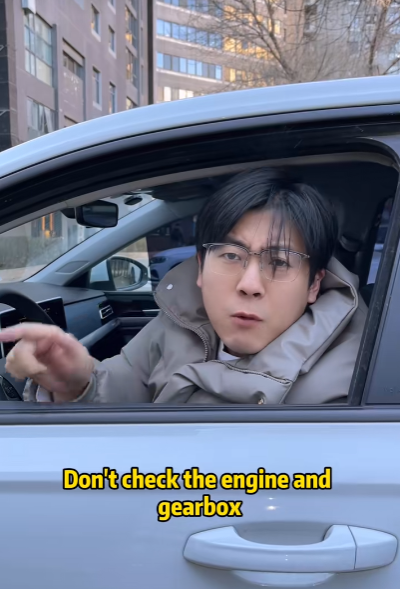
3. Knocking or Pinging Sounds
Knocking or pinging sounds, especially when accelerating or driving at higher speeds, are often caused by engine issues. This type of noise is usually a sign that your engine is not running as smoothly as it should.
Possible Causes:
- Engine Knocking: This can occur when there is abnormal combustion in the engine’s cylinders. It’s often caused by low-quality fuel, incorrect spark plug timing, or carbon buildup.
- Piston or Valve Problems: If there are issues with the pistons or valves, the engine can produce a knocking sound.
How to Solve:
- Check Fuel Quality: If you suspect the knocking is due to low-quality fuel, try switching to a higher-octane fuel and see if the noise subsides.
- Replace Spark Plugs: Old or faulty spark plugs can cause improper combustion, leading to engine knocking. Replace the spark plugs if necessary.
- Clean Carbon Deposits: If carbon buildup is the problem, a professional cleaning of the engine may be necessary.
- Seek Mechanic Help: If the noise persists, it could indicate a more serious issue such as a damaged piston or valve. Visit a mechanic for a full inspection.
4. Rattling Noises
Rattling sounds can be caused by a variety of factors, but they’re often associated with loose components in the car.
Possible Causes:
- Loose Parts: Small parts such as heat shields, exhaust components, or loose screws can rattle and create noise.
- Worn Suspension Components: Worn-out suspension components like shocks, struts, or bushings can cause rattling when the car is in motion.
- Exhaust Problems: A rattling noise under the car can also indicate issues with the exhaust system, such as a loose or damaged exhaust pipe.
How to Solve:
- Inspect the Exhaust System: Check for any loose or damaged components in the exhaust system, such as the catalytic converter or muffler.
- Examine the Suspension: If the rattling noise is coming from the suspension, have the shocks and struts inspected. Worn suspension components may need to be replaced.
- Tighten Loose Parts: Tighten any loose parts under the vehicle or around the engine bay that could be causing the rattling noise.
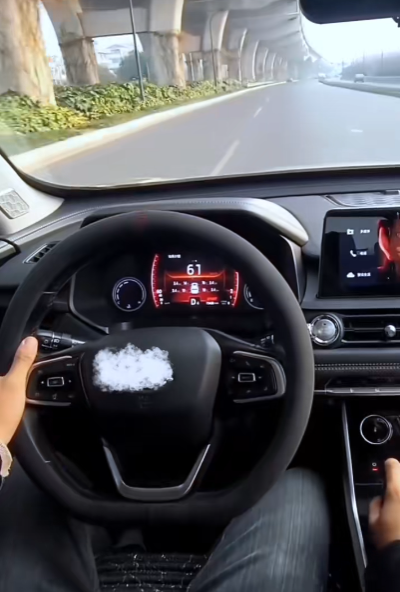
5. Whining or Whistling Noises
A whining or whistling noise, particularly when accelerating or turning, is often related to issues with the car’s belt system or power steering.
Possible Causes:
- Worn Serpentine Belt: The serpentine belt drives many of the car’s accessories, including the alternator, power steering pump, and air conditioning compressor. If the belt is worn, it can produce a whining noise.
- Power Steering Issues: A whining noise when turning could indicate a low level of power steering fluid or a problem with the power steering pump.
- Transmission Problems: In some cases, a whining noise might also come from the transmission, particularly if it’s low on fluid.
How to Solve:
- Inspect the Serpentine Belt: If the serpentine belt is cracked or worn, it should be replaced.
- Check Power Steering Fluid: If the whining occurs while turning, check the power steering fluid level. Low fluid can cause the power steering pump to make noise.
- Visit a Mechanic for Transmission Issues: If you suspect the noise is coming from the transmission, take your car to a professional for an inspection.
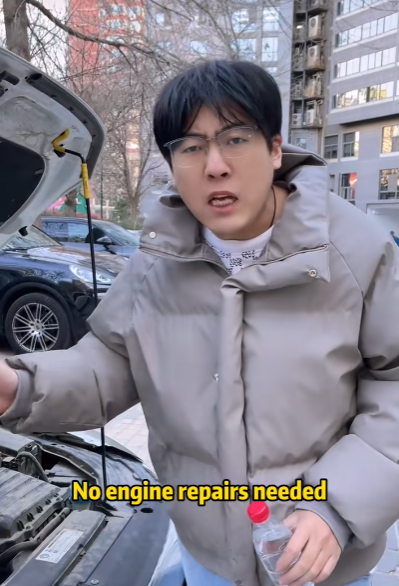
6. Hissing Noises
Hissing sounds usually occur when the car is idling or when the engine is running. These noises often indicate a problem with the engine or cooling system.
Possible Causes:
- Vacuum Leaks: A hissing sound can come from a vacuum leak in the engine, which can lead to poor engine performance.
- Cooling System Issues: A leak in the radiator, hoses, or water pump can also cause a hissing noise, often accompanied by overheating.
How to Solve:
- Inspect Vacuum Hoses: Look for any cracked or damaged vacuum hoses and replace them if necessary.
- Check the Cooling System: Inspect the radiator, hoses, and water pump for leaks. Ensure the coolant level is adequate.
Conclusion
Abnormal car noises can range from simple irritations to serious mechanical issues. Identifying the source of the noise is the first step toward solving the problem. Whether the issue is related to the brakes, engine, suspension, or another part of the vehicle, it’s important to address the problem promptly to avoid more costly repairs. Regular maintenance, timely inspections, and quick attention to unusual noises will help keep your car running smoothly and safely for years to come. If you’re unsure about the cause of the noise, always seek the assistance of a professional mechanic to diagnose and fix the problem correctly.
